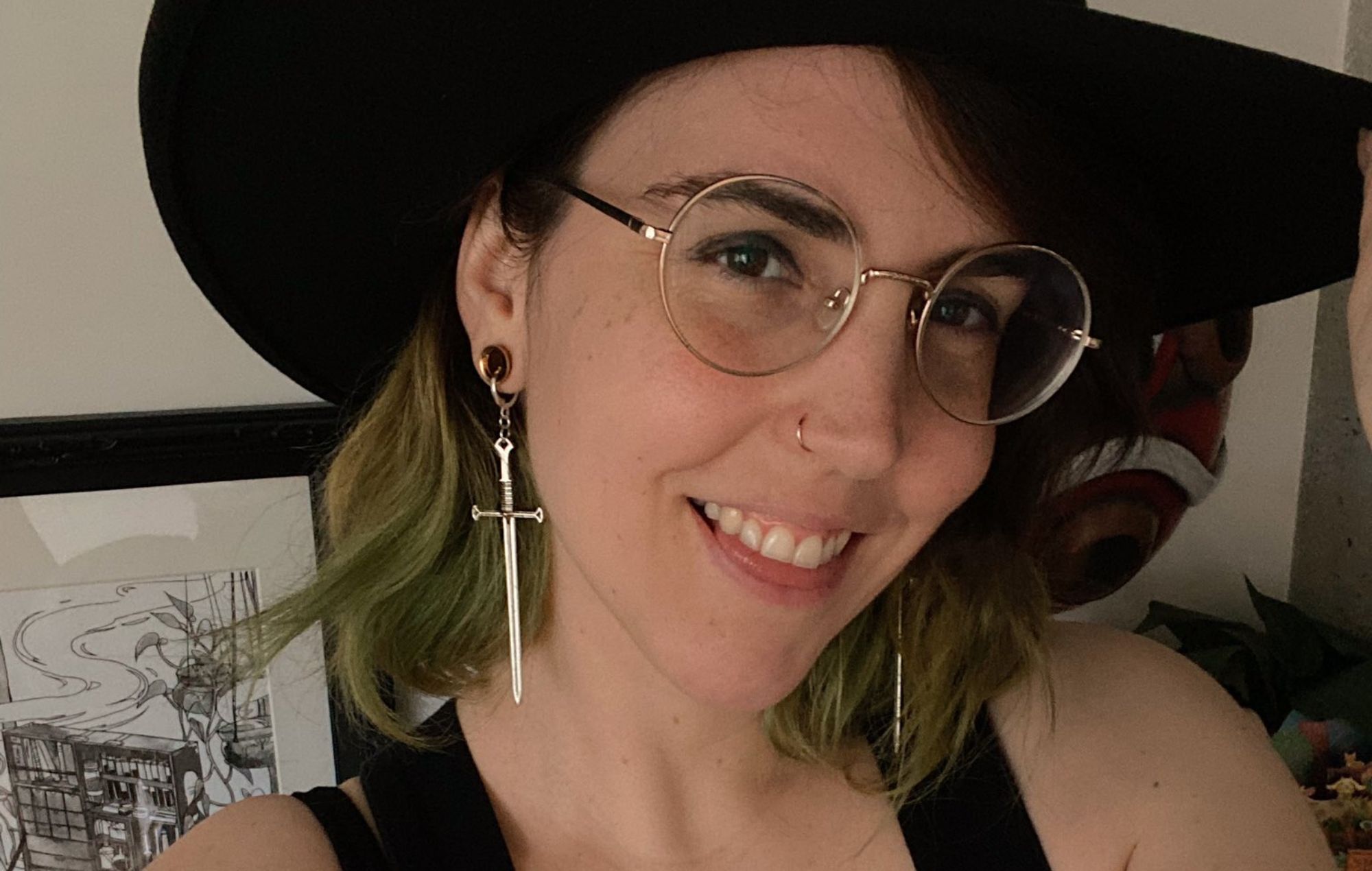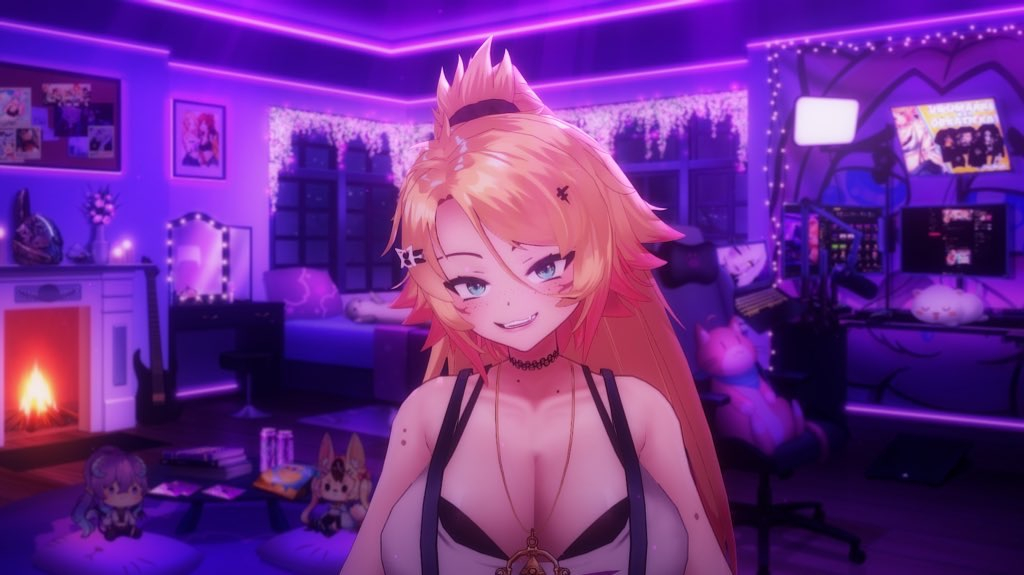Meet the women facing harassment and sexism for doing their streaming jobs
Three successful female streamers share their experiences

Twitch as a platform is becoming more diverse, with women beginning to infiltrate the hordes of cis white men at a greater rate. There are some hugely successful women on Twitch. Take the likes of Amouranth, who at the time of writing has just finished a mammoth 18-hour stream to over 10,000 concurrent viewers at a time. Yet the hate she receives is astronomical - why?
Some claim she tests the boundaries of Twitch’s Terms of Service by wearing clothes that are “too revealing” whilst others believe she’s a “bad influence” (via Vice) and even Twitch itself seems to further this narrative by banning her five times to date, sometimes for exhibiting the very same behaviors that streamers with a smaller viewership are also doing. One such ban was in relation to her successful ASMR streams, where Twitch claimed that the noises she made were too suggestive.
The truth is, Amouranth knows what she’s doing. With intelligent marketing and an on-screen persona that caters to the wants of her Twitch audience, Amouranth is one of the most successful women streaming on the platform. The treatment of her by the public and Twitch itself does thrust a pertinent question to the forefront though - does this happen to every woman that has a streaming career, or is this treatment reserved for the highest earners with the biggest following?
The nature of these attacks

Take Shoujo (http://twitch.tv/shoujo), for example. Real name Emily, she has been streaming on Twitch for five years and took the leap because she wanted to have something that she could call her own. “I felt like I wasn’t doing anything unique or worthwhile with my time,” she said, “I wanted to give Twitch a try.”
It’s clear Shoujo loves her community, she speaks warmly about everyone involved and describes them as “close-knit and friendly”. Shoujo herself tries to have meaningful interactions with the community and doesn’t shy away from talking about her real life off stream.
But the need for moderator help is pertinent. Shoujo is a transgender woman, and says that she faces transphobic comments “a few times a week”. “None of them are particularly original,” she says. She’s open about her gender identity, saying that she’s happy for anyone to ask whatever they want as long as it comes from a place of learning. “I think that I have a really cool opportunity to educate people about being trans, and I want to take that and do my best to help others learn.” It speaks volumes about Shoujo’s character that one of her favorite things about having the platform is “being able to share those details and help out other people who are having trouble,” she says, “ [it] makes me really happy.”
Sadly, rather than the comments becoming less frequent, Shoujo says that receiving all of the hate has “just made things easier to deal with over time,” and that it doesn’t really impact her anymore. “I have a community to protect and a stream to run, and that is generally what I try to focus on.”
Sign up for breaking news, reviews, opinion, top tech deals, and more.

Whilst her approach and attitude are strong and admirable, it does raise the question of why? Why, after everything that Twitch has become, are women still being faced with so much harassment, especially on something like their gender identity? Pushing the moral issue of that question aside for a moment, why does Twitch not have something better in place to deal with the many, many incidences of this that occur? Whilst moderators do a fantastic job, that is a great deal of pressure to carry, knowing that if your attention isn’t entirely on the comments in the chat, something damaging and hateful could slip through.
The rarity of women being successful in streaming doesn’t pass Shoujo by, either. The general consensus seems to be that this is down to the fact that Twitch as a whole has a lot of misogyny. “Whilst I think it has gotten better over time, there are still a lot of instances of misogynistic behavior in some of the top streams on Twitch,” she says. “It is really easy for certain people to get attached to that attitude and attack women for simply existing,” she continues. She isn’t the only one with this impression of the platform either, as fellow streamer WitchyTQ strongly agrees.
Building a community

WitchyTQ (http://twitch.tv/witchytq), real name Taylor, or known to her community as TQ, has been streaming for almost six years now, and originally took the step as she was helping a friend stream, and the community encouraged her that she should start her own channel. TQ says that her community ranges from 20-year-old students all the way up to grandmothers. “They’re all people who want to make the world a better place,” she glows, “Either by being a friendly ear or actively putting their time towards human rights and environmental causes.”
TQ, like her counterparts, enlists the help of moderators whom she calls “awesome humans”. “It’s important the community is safe even when you’re chin-deep in a game,” she says. She really cares about her community members, saying that her inbox is “always open”, and that people know she’s available to be pinged directly in her Discord server for anything at all.
But TQ faces hateful comments, too. “I know I don’t face anywhere near what some creators face, especially minorities, but there have been a lot of instances of calling out my appearance in negative ways,” she says, “or the more common slurs and insults about being a queer woman.” TQ identifies as pansexual, and agrees that the reason successful women streamers are a minority in themselves is simple. “Misogyny,” she says. “One word, but it’s lifetimes of learning this behaviour.” She refers to a common statement that is thrown around in defence of this behaviour, “Before anyone says ‘not all men’ yeah you’re right,” she says, “But it’s enough of you.”
What can be done?

She’s right, too; the top streamers on Twitch are men, and the top positions at the company itself are held by men, and she believes this fosters an environment of sexism - whether conscious or not. “I think misogyny and sexism go hand in hand to make the world as it’s ‘always been’ stay that way,” she muses, “and that bleeds into every part of the world, streaming included.”
So what can and should be done differently to change attitudes and help women feel safer when they’re doing their jobs on Twitch? “We need men in power to actively stand up for women and raise our voices rather than speaking over or for us,” says TQ. “We also need men in [Twitch] chats to call out the actions of others. Way too many just stay silent 'cause they don’t want to cause trouble,” she says. “Do it. Cause trouble.”
OBKatieKat (http://twitch.tv/obkatiekat), or Kat, has been streaming since 2019 and recently made the decision to begin using a v-tuber model, which is an animated avatar that moves in real-time with the user’s movements. Kat’s model is designed on her “IRL” appearance, and she says this was in order to not alienate her community. Kat’s community clearly means a lot to her, as she glowingly chats about gaming and movie nights in her Discord server which is full of people “there to make everyone comfy and let one another be themselves.”. After all, the reason she started streaming in the first place? “I just wanted to do something for people that I wish someone did for me.”
As a trans streamer herself, Kat also faces comments of transphobia and homophobia. “I try to deal with it as best as I can but there’s only so much you can do,” she says. “My mods are great at staying on top of keeping ‘shitters’ at bay,” she calls them, “so it isn’t as bad as it could be.”

In terms of her v-tuber model, Kat says the move to this came out of a deep personal “dysphoria” which was exacerbated by showing her real self on stream. Having always wanted to use a v-tuber model, she lacked the knowledge and contacts to set it up initially, leading to her wondering what privacy she might have had if she had done it from the start. Being open with her private and personal life has previously led to Kat, in her own words, “oversharing”, but she says that with the help of her friends and girlfriend, she feels she has managed to find a good balance now.
There are always things she doesn’t mind sharing though, as she speaks openly with her community about her gender identity if the subject comes up. “I’m fortunate enough to be able to explain being transgender to people and help them understand,” she says, before clarifying there is absolutely “nothing wrong with being curious and seeking knowledge and understanding is a good thing.” It’s heart-warming that, despite the adversity and transphobic comments she receives, this hasn’t put her off helping and educating others. “I’m still me at the end of the day, just a girl existing like any other.”
It’s not all bad, though. Amongst the hateful comments, homophobia, transphobia, and misogyny, there are plentiful wonderful moments that encourage these women to continue doing what they love. Shoujo’s personal achievements in streaming secured her a place racing Mario Maker 2 and Super Mario World Kaizo at Summer Games Done Quick this year. She describes it as a “big breakout moment” for her, saying that getting to meet some people in her community for the first time was “amazing,” and the racing experience was something she “will never forget”.
Women should feel safe streaming
OBKatieKat’s community banded together to raise money for Kat’s friend, VEXMILK’s cancer surgery. The power of a community “truly saved a life” says Kat, and she seems truly honored to have been the catalyst for such a fantastic achievement. TQ’s community raised over $10,000 for charity To Write Love on Her Arms in under a week, which she says is one of her favorite moments in her streaming career to date.
These creators all share one common view - that the safest spaces on streaming platforms belong to queer communities and their creators. TQ says, “LGBTQIA+ communities and streamers are definitely where I gravitate to,” whilst Shoujo comments that, “Generally, queer communities do a very good job of being friendly and making sure that hate is filtered out.”
It seems like Twitch, as a platform, should be taking notes from queer creators on how to safely exist online, and clamping down much harder on those users that will go out of their way to attempt to bring women down. In the meantime, Shoujo has advice for women who’d like to start streaming. “Find a group of friends that you can rely on and who will support you,” she says, claiming that these people will help you when you feel “defeated”. TQ agrees, saying it’s important to “make clear rules and have a support system in place before you start”.
There’s a strong sense of solidarity amongst women creators, and Kat concludes this perfectly in her advice to new streaming women: “Just don’t let the disadvantages kick you down - show them why they should watch you.”